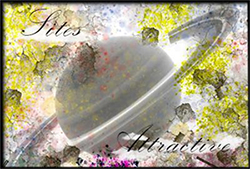
The introverted and misogynistic Baudelaire affirmed that the Devil's greatest stratagem is to make us believe that he does not exist, in the same way that a happy world does not exist either, no matter how hard Aldous Huxley tried, back in the sixties, more or less in the same time when the great filmmaker Stanley Kubrick gave us goosebumps with his unique film 'Red Telephone? We fly to Moscow', to become a flock of cloned sheep, with no other reason than to follow the tradition of Abraham and become an object of immolation, with or without the hope that the angel of the Lord will arrive in time and stop the terrible Sword of Damocles that hovers over our innocent hearts.

It was Kubrick himself, who also dared to bring to the big screens another of the great classics of science fiction, '2001, a space odyssey', where the author, Arthur C. Clarke, speculated on the monolith hypothesis If you remember the argument correctly, it could be said that it was not only a revulsive of intelligence in the primate, but also became the introducer of the idea of weaponry, when it encouraged the hominid to wield a jaw like offensive weapon.

The point is that reality can sometimes be much more fantastic even than fiction and the truth is that, wherever the germ that inoculated humans with the notion of weapons came from, there has been no humanity on the face of this planet. who did not know the horrors of war.
The terrible thing about the subject is that the more knowledge we have, the more technology we discover and the more it seems that we advance, as paradoxical as it may seem, the more we go back precisely to the time in which that first hominid realized the power of the jaw and used it to kill: therefore, do not ask for whom the bell tolls, they toll for you. Not to the war.

Afirmaba el introvertido y misógeno Baudelaire, que la mayor estratagema del Diablo es hacernos creer que no existe, de la misma manera que tampoco existe un mundo feliz, por mucho que se empeñara Aldous Huxley, allá por los años sesenta, más o menos en la misma época en la que el genial cineasta Stanley Kubrick nos ponía los pelos de punta con su inigualable película ‘¿Teléfono rojo? Volamos hacia Moscú’, en convertirnos en un rebaño de ovejas clonadas, sin otro fundamento que el de seguir la tradición de Abraham y convertirnos en objeto de inmolación, con o sin la esperanza de que el ángel del Señor llegue a tiempo y detenga la terrible espada de Damocles que se cierne sobre nuestro inocente corazón.

Fue el mismo Kubrick, quien también se atrevió a llevar a las grandes pantallas otro de los grandes clásicos de la ciencia-ficción, ‘2001, una odisea del espacio’, donde el autor, Arthur C. Clarke, especulaba con la hipótesis del monolito extraterrestre, que si recuerdan bien el argumento, se podría decir que no sólo fue un revulsivo de la inteligencia en el primate, sino que además, se convirtió también en el introductor de la idea de armamento, cuando alentó al homínido a empuñar una quijada como arma ofensiva.

La cuestión, es que la realidad en ocasiones puede ser mucho más fantástica aún que la ficción y lo cierto es que, viniera de donde viniera el germen que inoculó en los humanos la noción de armamento, no ha habido humanidad sobre la faz de este planeta que no conociera los horrores de la guerra.

Lo terrible del tema, es que cuanto más conocimientos tenemos, cuanta más tecnología descubrimos y cuanto más parece que avanzamos, por paradójico que parezca, más retrocedemos precisamente a la época en la que aquel primer homínido se percató del poder de la quijada y la empleó para matar: por eso, no preguntes por quién doblan las campanas, doblan por ti. No a la guerra.

NOTICE: Both the text and the accompanying photographs are my exclusive intellectual property and therefore are subject to my Copyright.
AVISO: Tanto el texto, como las fotografías que lo acompañan, son de mi exclusiva propiedad intelectual y por lo tanto, están sujetos a mis Derechos de Autor.




